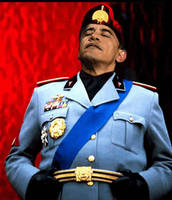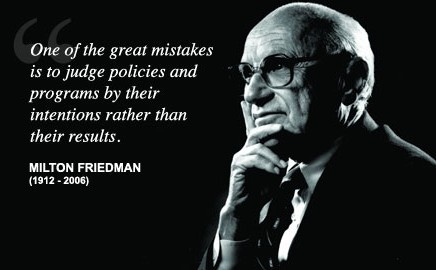All religions stem from the same universal needs. Each contains awe, obedience, grace, study, prayer, and submission. Each religion will order and stress these elements differently, but their root is the same—a desire to understand the Divine and its intentions for humankind.
The political impulse, similarly, must, however manifested, proceed from a universal urge to order social relations.
“The Secret Knowledge” by David Mamet
The Real “Iron Lady”
Reading about Meryl Streep’s preparation to act in “The Iron Lady” could lead one to believe that the real Margaret Thatcher was difficult to understand.
But if you go back to the dark days Britain faced in the late 1970s when she became prime minister, it’s really not that hard.
Obama to the nation: Onward civilian soldiers
War, said James Madison, is “the true nurse of executive aggrandizement.” Randolph Bourne, the radical essayist killed by the influenza unleashed by World War I, warned, “War is the health of the state.” Hence Barack Obama’s State of the Union hymn: Onward civilian soldiers, marching as to war.
No Need to Panic About Global Warming
A candidate for public office in any contemporary democracy may have to consider what, if anything, to do about “global warming.” Candidates should understand that the oft-repeated claim that nearly all scientists demand that something dramatic be done to stop global warming is not true. In fact, a large and growing number of distinguished scientists and engineers do not agree that drastic actions on global warming are needed.
“Ameritopia-The Unmaking of America” by Mark Levin
My premise, in the first sentence of the first chapter of this
book, is this: “Tyranny, broadly defined, is the use of power to
dehumanize the individual and delegitimize his nature. Political
utopianism is tyranny disguised as a desirable, workable, and even
paradisiacal governing ideology.”
Plato’s Republic, More’s Utopia, Hobbes’s Leviathan, and Marx’s
workers’ paradise are utopias that are anti-individual and antiindividualism.
For the utopians, modern and olden, the individual
is one-dimensional—selfish. On his own, he has little moral value.
Contrarily, authoritarianism is defended as altruistic and masterminds
as socially conscious. Thus endless interventions in the individual’s
life and manipulation of his conditions are justified as
not only necessary and desirable but noble governmental pursuits.
This false dialectic is at the heart of the problem we face today
Penetrating the illusion of tolerance and diversity
“You’re traveling through another dimension, a dimension not only of sight and sound but of mind; a journey into a wondrous land whose boundaries are that of imagination. That’s the signpost up ahead…”
Yep, it’s “The Twilight Zone” — or is it MSNBC?
Sometimes, it’s hard to tell the difference
Who wouldn’t enjoy firing these people?
Earlier this week, Mitt Romney got into trouble for saying, “I like being able to fire people who provide services to me.” To comprehend why the political class reacted as if Romney had just praised Hitler, you must understand that his critics live in a world in which no one can ever be fired — a world known as “the government.”
(And a tip for you Washington types: Just because a person became rich without working for government doesn’t mean he is “Wall Street.” A venture capital firm in Boston that tries to rescue businesses headed for bankruptcy, for example, is not “Wall Street.”)
Hey, remember this guy?
With all eyes on the Republicans and their presidential-nomination donnybrook, behind the scenes President Obama is still busy with the “fundamental transformation” of the US that he promised during the 2008 campaign.
While analysts have been chewing over Rick Santorum’s surprise near-victory over front-runner Mitt Romney in the Iowa caucuses last week, the real action has been going on under the media radar in Washington, where:
Read more: http://www.nypost.com/p/news/opinion/opedcolumnists/hey_remember_this_guy_L7HnrH4rTOZHgR4vwjCrYI#ixzz1isd3LUid
They Mean Well. Really?
For the life of me, I can’t figure out why conservative pundits, even such stalwarts as Rush Limbaugh, when discussing the virtually inexhaustible supply of liberal follies and blunders, hasten to express their confidence that the perpetrators are “well-intentioned.” Why do conservatives hew mindlessly to the conventional line that far-left radicals are necessarily high-minded and motivated by the best of intentions?








